![Himachal Pradesh University - [HPU]](https://staticstage.collegedunia.com//public/college_data/images/appImage/25556_HPU_New.jpg?tr=h-240,w-1000,c-force)
Master of Arts [MA] (Rural Development) From HPU, Shimla
| Year | 1 | 2 |
|---|---|---|
| Admission fees | ₹150 | - |
| Tution fees | ₹1800 | ₹1800 |
| Other fees | ₹3850 | ₹3250 |
| Total Year Wise fees | ₹5,800 | ₹5,050 |
Course Description
Master of Arts in Rural Development Top Colleges, Syllabus, Scope and Salaray
M.A. in Rural Development is a 2-year postgraduate course in rural development, focusing on:
- practices that can be applied to improving quality of life in rural areas.
- wise management of resources.
- adequate utilization of the current workforce to facilitate sustainable development.
- development for boosting agricultural productivity.
- agriculture as the backbone of rural society.
- enhancing the quality of health and nutrition in rural areas.
- the delicate balance between agriculture and urbanization of towns.
- social issues pertaining to the lives of people in small communities.
- strategies for building feasible solutions to rural problems.
- Rural Sociology.
- Agricultural Management.
- Human Resources.
- Economics.
- Resource Planning and Management.
- Health, Economics and Agricultural Growth.
| Master of Arts in Maharashtra | Master of Arts in Uttar Pradesh | Master of Arts in Karnataka | Master of Arts in Madhya Pradesh |
Popular areas of employment for such postgraduates include:
- government agencies
- nonprofit organizations
- regional planning
- project planning
- project implementation
- evaluation of development at international, national and local levels.
The average course fee in India ranges between INR 30,000 - 5 lacs for the total duration. The average annual salary offered to successful postgraduates of this field lies between INR 3-10 lacs.
M.A. in Rural Development: Course Highlights
Listed below are some of the major highlights of the course
| Course Level | Postgraduate |
| Duration | 2 years |
| Examination Type | Semester System |
| Eligibility | Graduation from a recognized university |
| Admission Process | Merit-based/ entrance exam in some cases. |
| Course Fee | INR 2,000 -30,000 |
| Average Starting Salary | INR 2-4 lacs |
| Top Recruiting Organizations | Tata Teleservices, Amul, Monsanto, Shriram Group, NABARD, ICICI Bank, Aditya Birla Group, National/International NGOs, Hero Group, Mahindra and Mahindra. National NGOs like Nandi Foundation, PRADHAN, CARE, SEWA, BAIF, Seva Mandir, etc. |
| Top Recruiting Areas' | Human Resource Development, General Management, Finance, Project Implementation, Marketing, Purchase, in all segments of rural based enterprises. |
| Top Job Profiles | Research Officer, Rural Executives, Rural Manager, Senior Program Officer, Project Co-ordinator, and such. |
M.A. in Rural Development: What is it About?
The course is essentially about effecting positive changes in the structure and dynamics of rural India. The program is also open for:
-
development practitioners
- policymakers
- government officials
- project managers
- program coordinators
- policy makers
- consultants
- NGO staff
- private sector employees
- government ministry staff interested in learning new skills about rural development.
Students enrolled to the course are taught about:
- decentralization of government.
- importance of local governance.
- latest methodologies and approaches that are made available for the facilitation of social learning and change.
- new paths of bringing about change in the hierarchy of governance.
mechanisms to strengthen the rural structure through latest developmental techniques. - theoretical and practical skills through experiential learning.
- building perspectives of rural development framework and ethics.
- comprehensive understanding and critical analysis with regard to shifts of rural development.
- various governance structures of State, market, civil society, and community
- implications on the livelihoods of the poor and schemes to empower them.
- the various skills and tools for a thorough and critical analysis of governance scenarios
- internalization of rural environs, institutions, and initiatives.
- values through a set of foundational courses that familiarize the students with policy, program, and field-based issues.
- planning and project management skills.
- generation of qualitative data and implementation of scheme formulas.
- addressing micro and macro issues.
M.A. in Rural Development: Who should opt?
Skills ideally required in aspiring candidates for the course include:
- friendly personality
- ability to handle masses
- ability to handle pressure
- leadership skills
- communication skills.
Top Institutes offering M.A. in Rural Development
Listed below are some of the top institutes offering the course in the country with the corresponding locations and fees charged by each.
| Name of Institute | City | Average Fees per annum in INR |
| Indira Gandhi National Open University | Delhi | 3,650 |
| Annamalai University | Cuddalore | 7,000 |
| Bangalore University | Bangalore | 5,000 |
| Ranchi university | Ranchi | 2,300 |
| Ravenshaw University | Cuttack | 10,000 |
| Dr. B. R Ambedkar University | Agra | 15,000 |
| Andhra University | Vishakhapatnam | 9,750 |
| Bhagat Phool Singh Mahila Vishwavidyalaya | Sonepat | 12,500 |
| Dr. Hari Singh Gour University | Sagar | 5,380 |
| Mahatma Gandhi Chitrakoot Gramoday Vishwavidyalaya | Chitrakoot | 11,400 |
| Mahatma Gandhi Kashi Vidyapeeth | Varanasi | 2,515 |
| Nehru Gram Bharti University | Allahabad | 4,200 |
| Patna University | Patna | 2,300 |
| Rani Durgavati University | Jabalpur | 2,700 |
| Sri Venkateswara University | Tirupati | 36,000 |
| Swami Vivekananda University | Sagar | 8,000 |
Eligibility for M.A. in Rural Development
Candidates aspiring for admission to the course are required to fulfill the following minimum eligibility criteria.
- Graduation completed in any discipline from a recognized university.
- A minimum aggregate score of 50% (45% for SC/ST/OBC candidates) at the level of graduation.
- Candidates appearing for their final graduation-level examination are also eligible to apply for the course on provisional basis.
| Master of Arts in Andhra Pradesh | Master of Arts in Rajasthan | Master of Arts in West Bengal | Master of Arts in Assam |
M.A. in Rural Development: Admission Process
Most institutes offering the course in India admit students based on their performance in a relevant entrance test, followed by a subsequent round of counselling. The round of counselling consists of two additional rounds of group discussion and personal interview, wherein the candidate’s general aptitude for the course is examined.
Some institutes conduct their own entrance tests for offering admission. Admission process generally varies across colleges. A few institutes also provide direct admission based on the candidate’s score at the level of graduation.
Mentioned below are some of the major entrance examinations conducted in the country for admission to the course.
M.A. in Rural Development: Syllabus and Course Description
A semester-wise breakup of the course’s syllabus is tabulated below.
Semester 1 |
Semester 2 |
| Rural Development: Concepts and Dimensions | Rural Industrialization and Entrepreneurship |
| Indian Rural Economic Scene | Rural Development Institutions and Strategies |
| Indian Rural Social Scene | Working with people: Techniques and Processes |
| Economics for Rural Development | Social Research and Computer Applications for Rural Development |
Semester 3 |
Semester 4 |
| Natural Resources Management: Land | Micro Finance, Self Help and Women Empowerment |
| Natural Resources Management: Water | Rural Project Planning and Management |
| Natural Resources Management: Vegetation | Rural Credit and Marketing |
| Human Resource Development in Rural Sector | Voluntary Action for Rural Development |
M.A. in Rural Development: Career Prospects
In the recent times, Panchayat Raj institutions have been given importance in the government system of India. This has resulted in:
- quick and efficient planning of rural areas that are abundant in number.
- the government framing various policies for the benefit of the poor, like Laadli Laxmi Yojna, Kisan Bima Yojna, and various others.
- a huge demand for professionals who understand the rural background.
- efficient planning and implementation of rural development programs and schemes. need for centrally sponsored or State government initiatives.
- need for Rural Development Officers in agribusinesses, micro finance, rural entrepreneurship and rural infrastructure support programs.
Interested postgraduates may go for pursuing higher education, namely M.Phil. and Ph.D. in Rural Development.
Some of the popular professional avenues open to such postgraduates are listed below with the corresponding salaries offered for the respective positions.
![Master of Arts [M.A.] in Rural Development annual salary](https://images.collegedunia.com/public/image/Master%20of%20Arts%20%5BM_A_%5D%20in%20Rural%20Development%20annual%20salary.png)
| Job Position | Job Description | Average Annual Salary in INR |
| Senior Program Officer | They are responsible for a variety of high-level organizational planning schemes intended to benefit a certain class of people. They typically possess outstanding interpersonal and organization management skills to interact with all levels of staff. | 3-6 lacs |
| Rural Manager | Rural Managers work under advisory, research, and consultancy subheads, and with private & public organizations. | 4-6 lacs |
Eligibility Criteria
Aspirants seeking admission to 2 year Full-time MA Program should meet the following criteria as specified by the institute.
- Candidate should have a Bachelor's Degree or equivalent with a minimum of 48 credits in a Major subject, 48 credits in two minor subjects, 9 credits in compulsory, 1 credit in GI & hobby with an aggregate of 106 credits for the award of the pass degree. OR
- Candidate should have at least 50% marks in aggregate (45% in case of SC.ST.) from a University established by law in India.
Course Finder
Search from 20K+ Courses and 35+ Streams
Popular Streams:
HPU Latest News
HPU MCA Entrance Exam 2023 Application Form Out; Apply till April 29


HPU PhD Admission 2022-23 Open; Last Date Extended till March 31


GATE 2023 Scorecard Out: Download Link @gate.iitk.ac.in, Validity, Use of Scorecard


![Himachal Pradesh University - [HPU]](https://staticstage.collegedunia.com//public/college_data/images/logos/1421046799opkl.png?tr=h-71.17,w-71.17,c-force)
 “
“




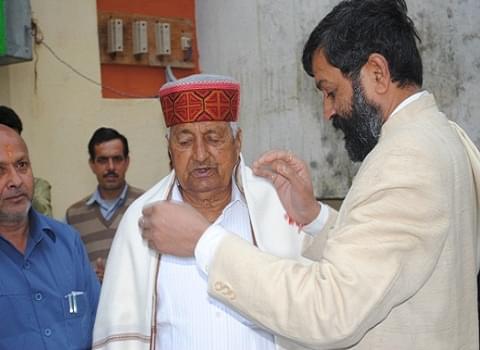
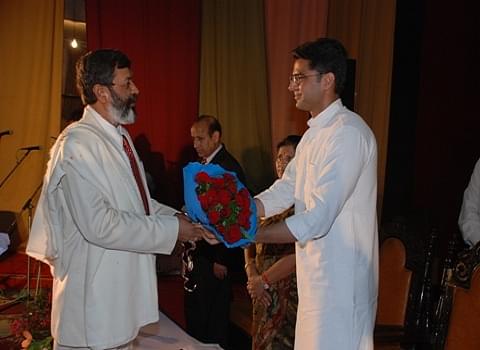
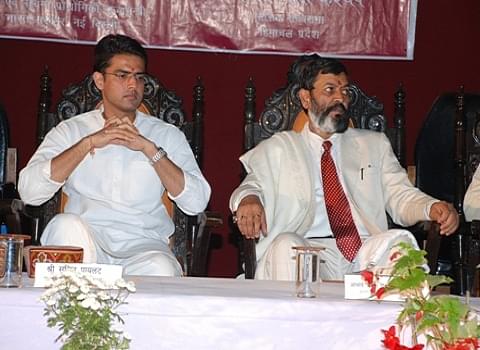
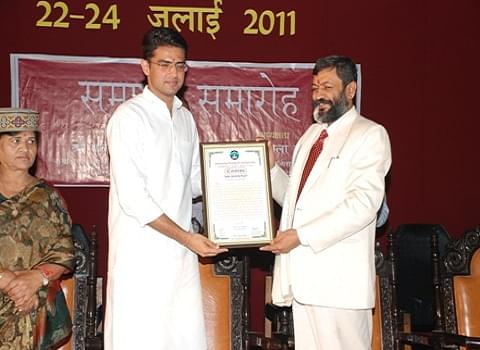
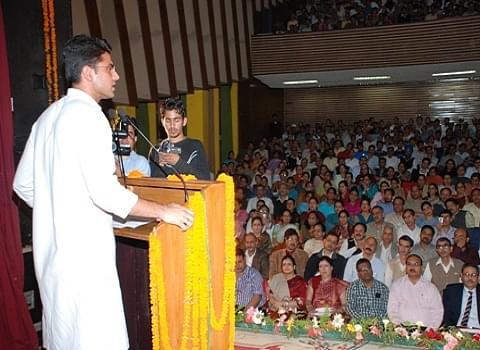
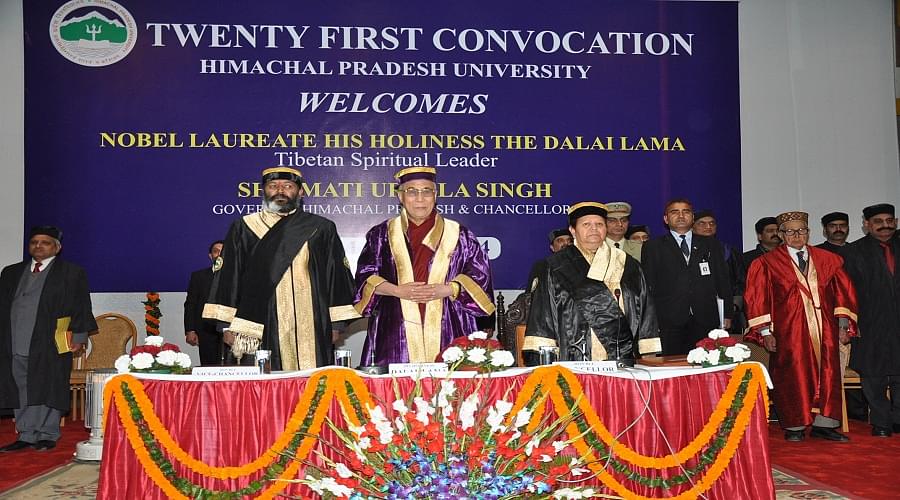
![Himachal Pradesh University Business School - [HPUBS]](https://staticstage.collegedunia.com//public/college_data/images/logos/1473240101Himachal-Pradesh-University1.jpg?tr=h-72,w-72,c-force)
![International Centre For Distance Education And Open Learning, Himachal Pradesh University - [ICDEOL]](https://staticstage.collegedunia.com//public/college_data/images/logos/1547809151Capture.png?tr=h-72,w-72,c-force)










Comments